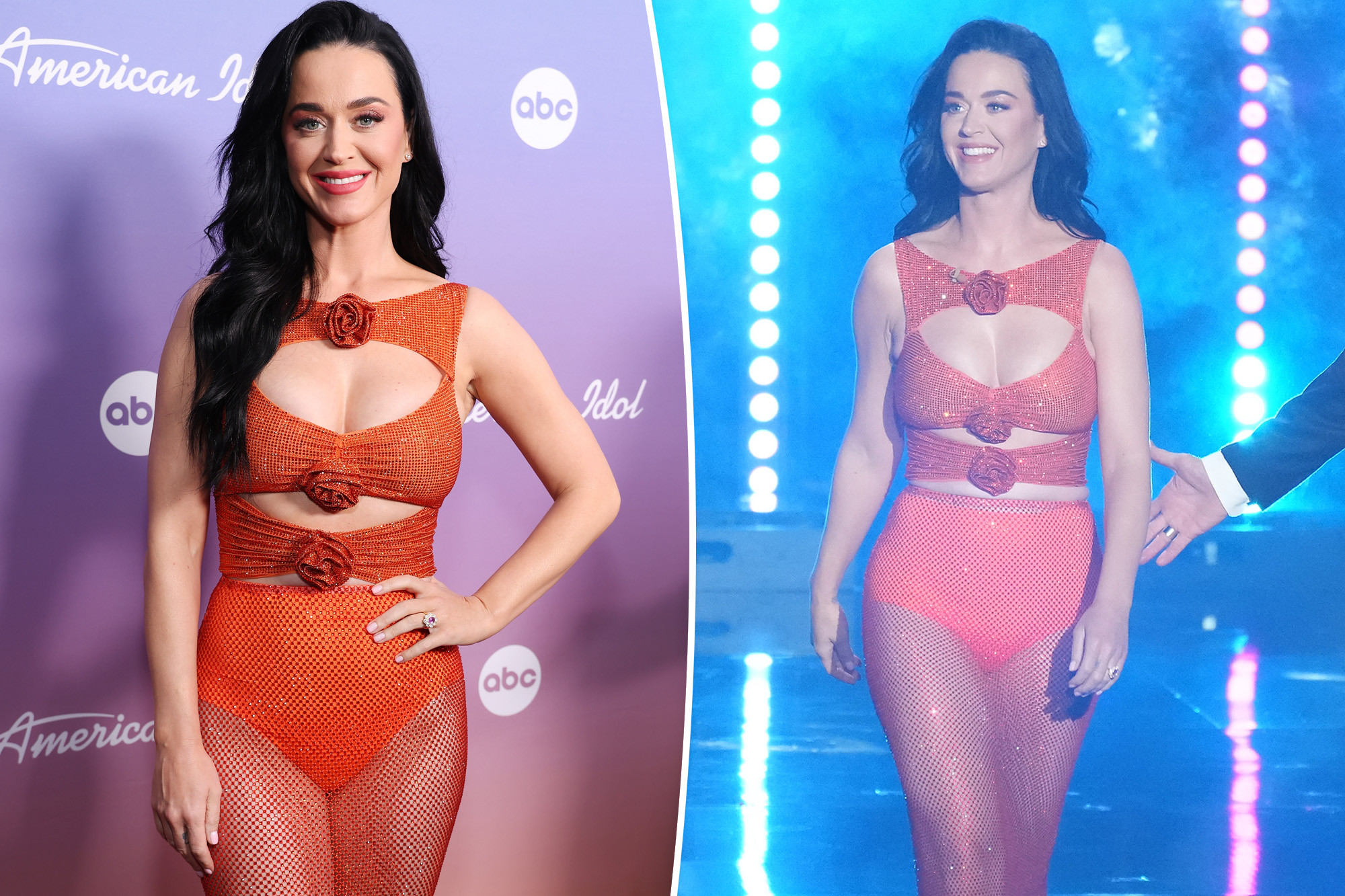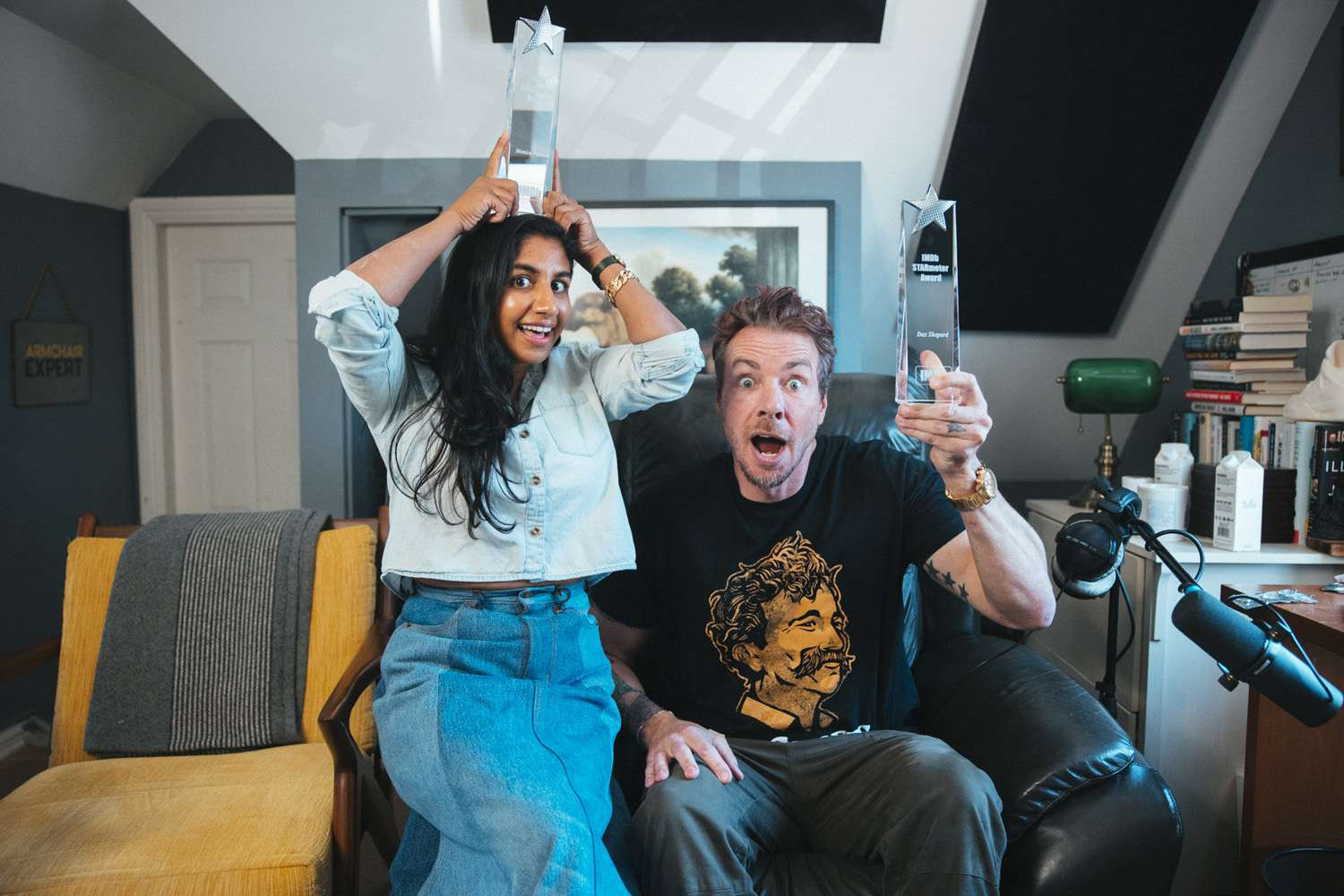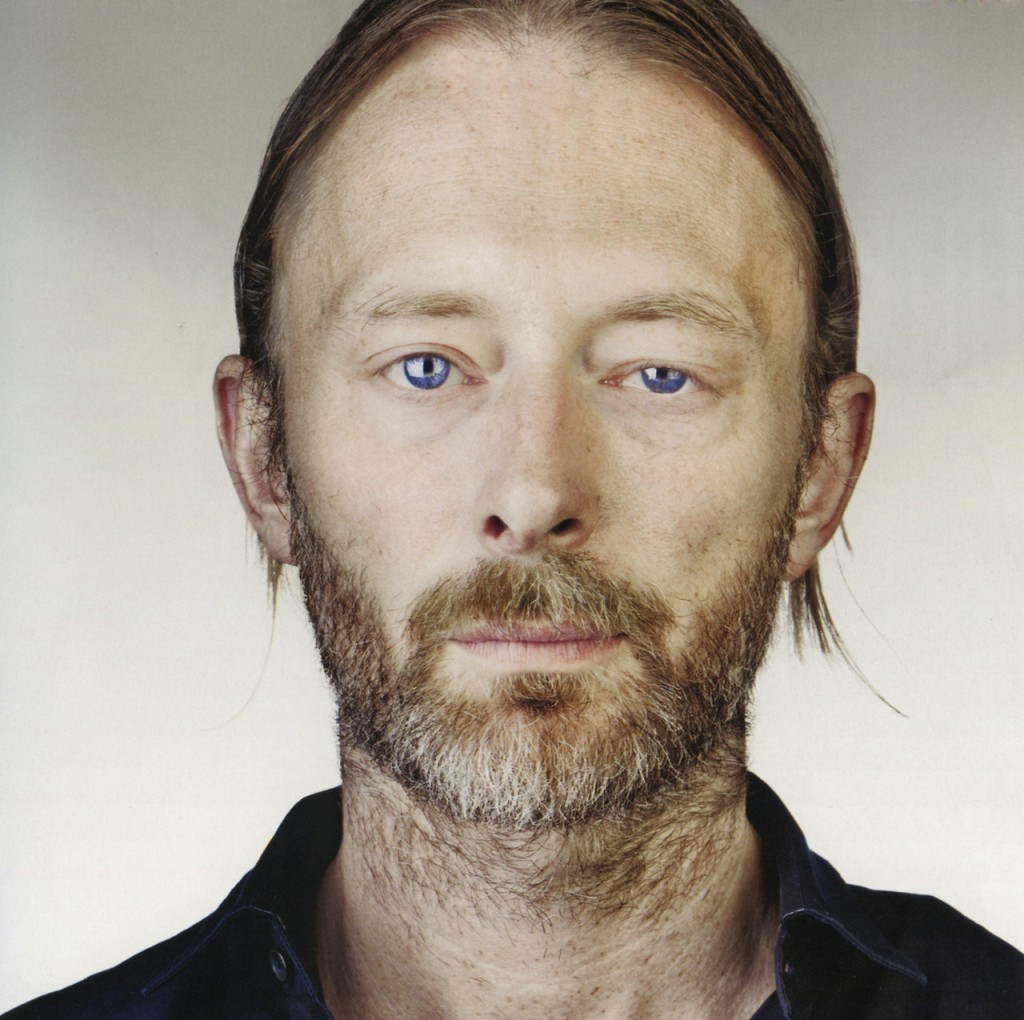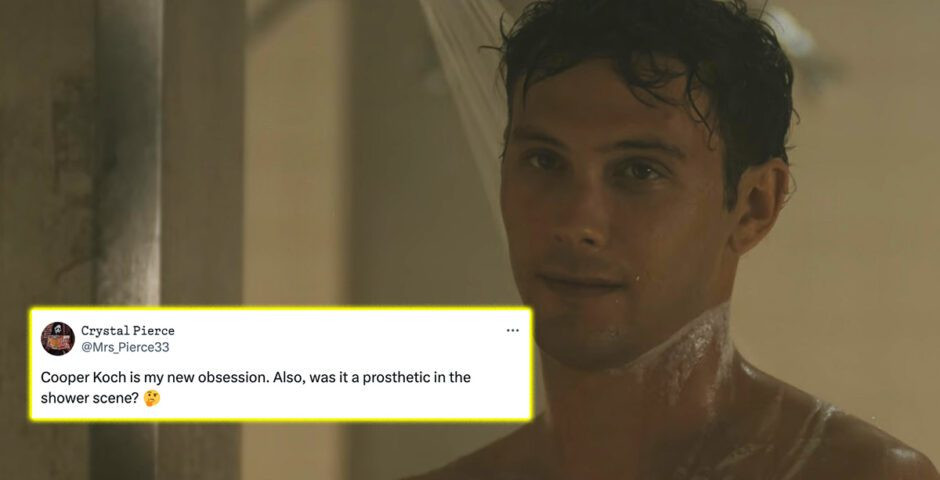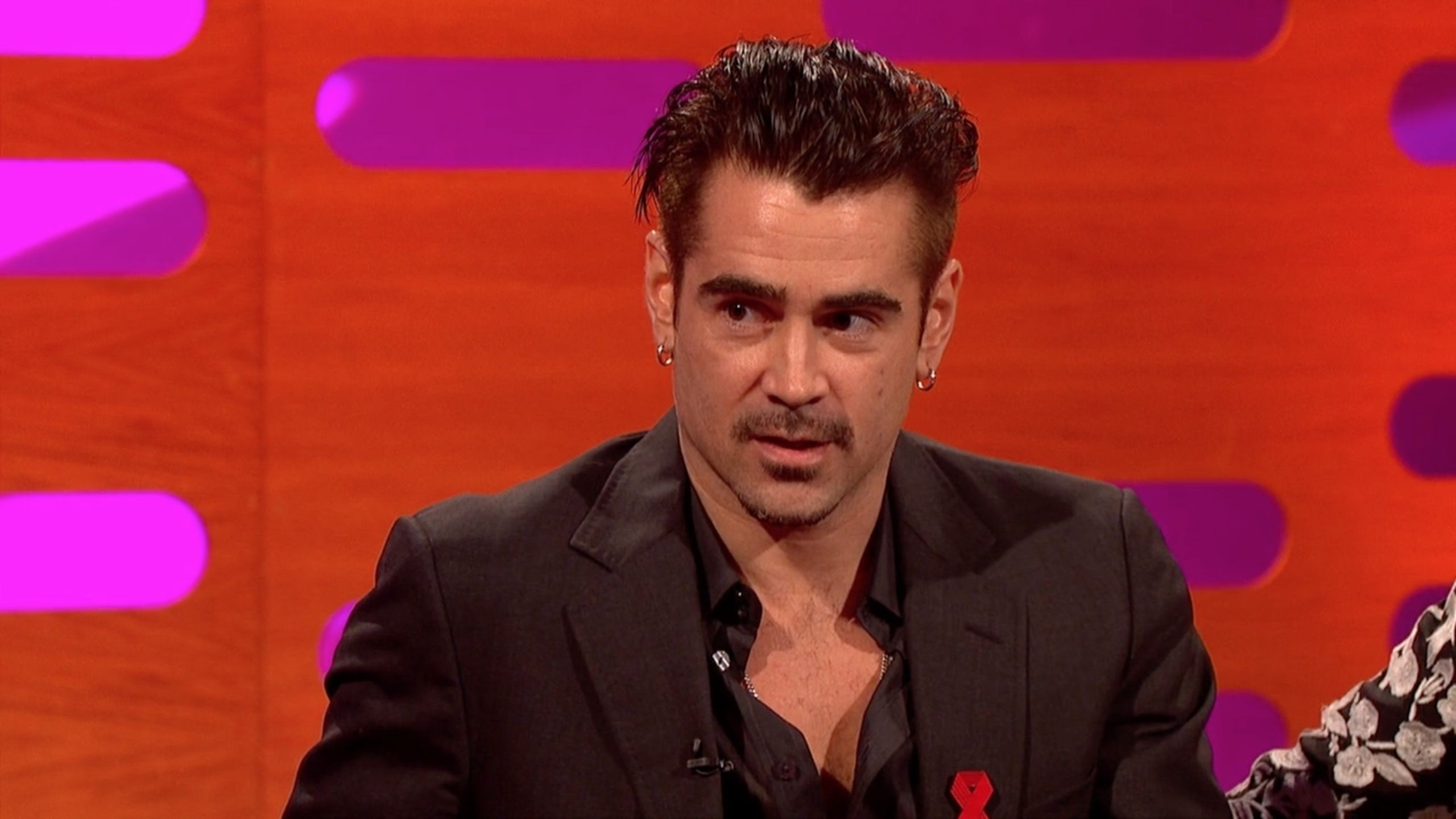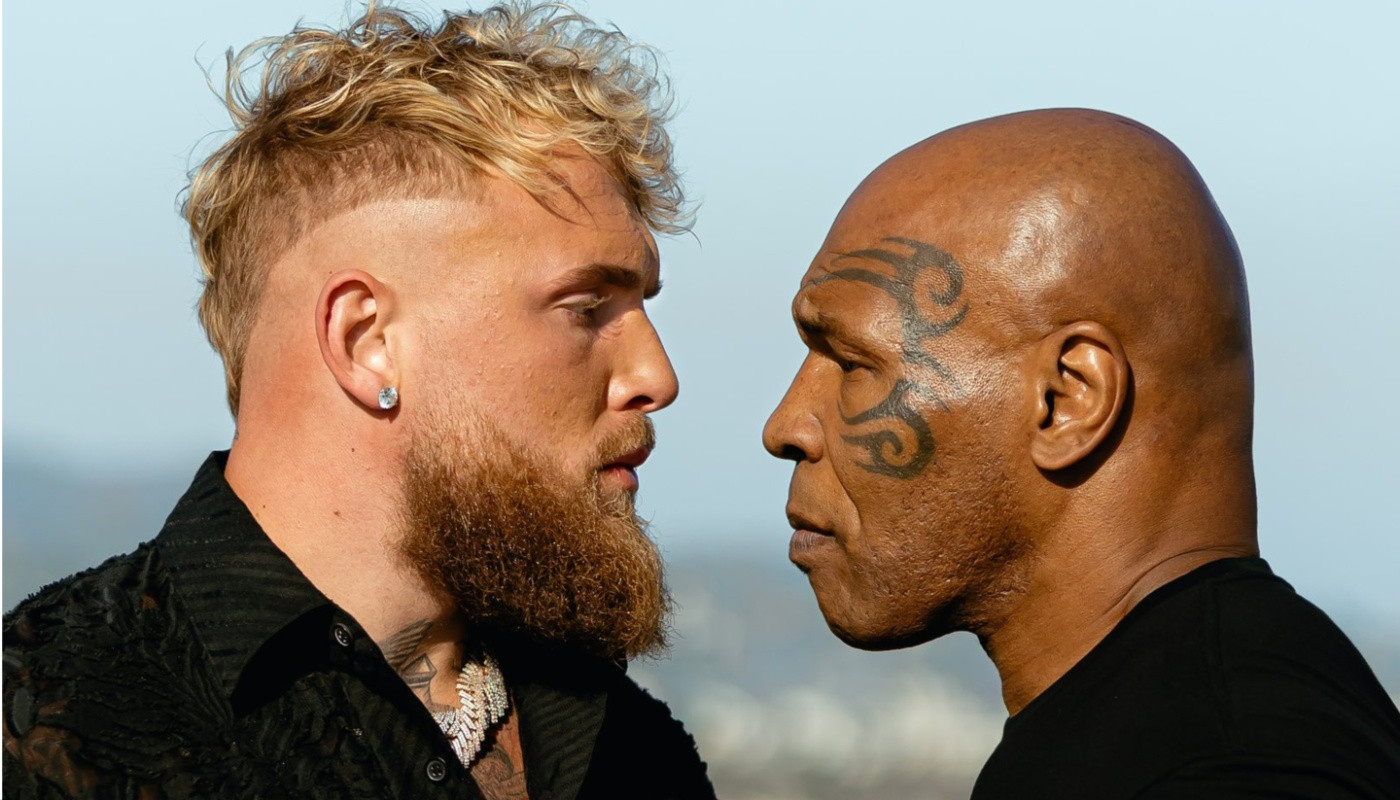She was one of the world's biggest pop stars – but her new album has been plagued by controversy and failed singles. Here's why she's stumbled – and what it says about music today.
The comeback has a special place in pop culture. From Judy Garland's career-reviving 1961 concert at Carnegie Hall to Cher's reinvention as a chart-topping dance diva with 1998's Believe, it's a story that never loses its emotional piquancy. There's something moving and even comforting about seeing a great star return to the top, particularly because it doesn't happen every time. For this reason, the narrative's sad flipside – the failed comeback – is every bit as fascinating. It reminds us that to miss the target is fundamentally human and that nothing in life is guaranteed.
This is the prevailing wind that Katy Perry faces today as she releases her seventh album, 143. Its controversial lead single Woman's World stalled at number 63 on the Billboard Hot 100 and number 65 in the UK when it arrived in July, while its more anodyne follow-up, Lifetimes, had to settle for a number 15 placing on the less prestigious Billboard Bubbling Under Hot 100. These are crushing results for an artist who has more diamond singles denoting US sales of 10 million units – six – than any female artist bar Rihanna. "Katy Perry is one of the biggest names in pop music, so when these songs didn't cut through, it created an interesting story for the media," says Hugh McIntyre, a music journalist with Forbes. And that story is: Why is her new music not connecting with the public?
The problems all began with the Woman's World rollout in July. Two months after its release, it's difficult to regard the song as anything other than dead on arrival. In an Apple Music 1 interview, Perry said she wanted it to reflect her "feminine divine" and feel "empowering" in a similar way to her signature hits Firework (2010) and Roar (2013). When she sings "it's a woman's world and you're lucky to be living in it," it's a characteristically plainspoken expression of that message. Perry shrewdly acknowledged in the interview that people associate her with "songs that are captions on T-shirts and stuff like that".
However, many fans and critics felt that Perry's feminist message was fatally undermined by her choice of collaborator – producer Lukasz Gottwald, better known as Dr Luke. Perry worked extensively with Dr Luke on her three most successful albums – 2008's One of the Boys, 2010's Teenage Dream and 2013's Prism – but he was absent from her subsequent albums, 2017's Witness and 2020's Smile. Both of these were written and released within the timeframe of his lengthy legal battle with pop singer Kesha. Though Perry has never commented in a press interview on her decision to sever ties with Dr Luke, she said during a 2017 deposition that she chose not to work with him on Witness because she didn't want to appear to be "taking a side".
At the time, their legal battle was still sending shockwaves through the music industry. In October 2014, Kesha had filed a lawsuit against Dr Luke claiming he had drugged and raped her on two occasions in addition to "sexually, physically, verbally and emotionally" abusing her. Dr Luke countersued Kesha for defamation and said she had fabricated claims to extricate herself from a recording contract. In February 2020, a judge ruled that Kesha had defamed Dr Luke when she claimed in a text to Lady Gaga that the producer had raped Perry; the producer denied this allegation and Perry said it was "absolutely not" true during her deposition. Kesha and Dr Luke's extended dispute was eventually settled in June 2023 when both parties posted a statement saying they had "agreed to a resolution".
However, Dr Luke's name remains controversial, even as some industry gatekeepers have welcomed him back into the fold – since 2021, he has picked up multiple Grammy nominations for his work with pop-rap star Doja Cat. Music journalist Rhian Daly believes that Perry "really misjudged how working with Dr Luke again would go down". Though Daly acknowledges that Perry is "not the first artist to collaborate with Dr Luke since Kesha's legal battle", she also notes that Doja Cat in particular has since distanced herself from him. In 2021, the rapper and singer told Rolling Stone that there is music of hers "that he's credited for, where I'm like, 'Hmm, I don't know, I don't know if you did anything on that'". She also said: "I don't think I need to work with him again." By contrast, a representative from Perry's label told Rolling Stone in June that "Katy knew exactly the album she wanted to make and put together the team to make it happen".
As a result, Perry launched her 143 album campaign under a fog of controversy; many fans found it confusing at best that she would craft a song about female empowerment with a man who has been publicly accused of abuse by a woman – albeit that the complaint was dropped and never went to a court. The song's lyrics were also called into question. In her songwriting, Perry has always favoured mass appeal over sophistication – her 2010 hit Firework features the couplet: "Boom, boom, boom / Even brighter than the moon, moon, moon." But even so, the lyrics of Woman's World feel reductive, particularly given the huge issues of womanhood and gender equality she is writing about. "She's a winner, champion, superhuman, number one," Perry sings on the pre-chorus.
Though well-meaning, this rather monolithic vision of feminine excellence might have resonated better a decade ago when the expression "girlboss" still felt fresh. Music journalist Amy Davidson says that in the current climate, fans "won't stand for tokenistic attempts at entering the conversation". She points out that two of 2024's most talked-about artists, Charli XCX and Chappell Roan, have "blazed trails" by writing with scorching authenticity. XCX's recent hit Girl So Confusing, for example, explores the messy complexity of female friendships with such matter-of-fact lyrics as: "Sometimes I think you might hate me / Sometimes I think I might hate you / Maybe you just wanna be me." Meanwhile, democratic presidential nominee Kamala Harris has used Roan's spiky and direct call-to-arms Femininomenon in a TikTok campaign video – something Perry could feasibly have imagined Woman's World being deployed for.
Meanwhile, Perry's accompanying music video for the song only added fuel to her detractors' fire. Scenes in which she channelled World War Two icon Rosie the Riveter and portrayed a bikini-clad bionic woman were perceived by some to be pandering to the male gaze. Perry responded to this criticism by seemingly claiming that the visuals were intended to send up the male gaze. "You can do anything! Even satire!" she posted on X alongside a clip from the video.
This defensive approach was a far cry from the confidence with which she announced her new album 143 on the same day as Woman's World dropped. In a press release, the LP was trumpeted as "a sexy, fearless return to form for the multifaceted musician" that is "jam packed with the empowering, sexy and provocative pop anthems you've come to love". The subtext was easy to decipher: Perry was aiming to regain the cultural domination of her late 2000s and early 2010s imperial phase.
Home to the sleekly cheeky hits I Kissed a Girl and Hot n Cold, Perry's 2008 album One of the Boys – her second, but first on a major label – made her a global star. Then with 2010's Teenage Dream LP, she went truly supernova. A bold, maximalist mix of pop, rock, hip-hop, dance and disco, it yielded five Billboard Hot 100 number one singles including California Gurls and the title track, matching a record set by Michael Jackson's 1987 album Bad. During this era, Perry displayed her ability to ride the zeitgeist while mining multi-generational nostalgia by filling her Last Friday Night (T.G.I.F.) music video with celebrity cameos ranging from then-recent viral star Rebecca Black to 1990s boyband Hanson and 1980s heartthrob Corey Feldman.
Released in 2013, Perry's more mature fourth album Prism was less of a blockbuster success, but it did yield another two Billboard Hot 100 number ones: Roar and Dark Horse. The bottom only really fell out of her chart-topping era with 2017's Witness LP. Perry described it as an album of "purposeful pop" written in the wake of the previous year's highly polarised presidential election, but this message was undercut by second single Bon Appétit. Filled with crass food-as-sex metaphors, it stalled at number 37 in the UK and number 59 in the US. Though her subsequent album, 2020's Smile, was trailed by the genuinely brilliant electro banger Never Really Over, it failed to return Perry to the top of the charts.
Still, it is worth noting that Perry remained a power player even when her stock had apparently fallen: in 2018, Forbes named her the highest-paid woman in music after she pocketed $83 million thanks to a successful tour and her new judging role on American Idol. The singer has kept her profile up by appearing on the TV singing contest ever since, but she announced in February that the current season will be her last: a sure sign she wants to remind people that she is a pop star first. Sadly, neither Woman's World or its follow-up singles have quite restored her lustre. Lifetimes, a house-flavoured celebration of maternal love, and I'm His, He's Mine, a collaboration with rising star Doechii built around a chunky sample from Crystal Waters' 1991 club classic Gypsy Woman, both missed the Billboard Hot 100 entirely. And she's run into further troubles with her visuals as well: in August, it was reported that she was under investigation by Spanish officials for allegedly filming the Lifetimes music video in an ecologically sensitive part of the Balearics without permission. A spokesperson for Perry's label said the production company responsible for the video had "assured us all necessary permits for the video were secured", but it added to the snowballing narrative that Perry’s album rollout has been uncommonly messy.
McIntyre believes these singles sound "kind of dated" because Perry has failed to move with the times. "It feels like she's trying to engineer a pop song that everyone will like – from 12-year-old kids to their 40-year-old parents," he says. Perry may have perfected this formula during her Teenage Dream era, but McIntyre questions whether it is possible to write songs with "such widespread appeal" in 2024, when the media is "much more fractured". While many Gen X and millennial music fans are still avid radio listeners, consumers from Gen Z and the age group below, Gen Alpha, are probably more likely to discover a song through apps such as TikTok and Spotify.
Daly also believes that Perry has struggled to adjust to a very different cultural climate. "Back in 2014, there was a real sense of hope and her bright, bubbly pop matched the mood," she says. "But now, after a global pandemic, years of austerity, and ongoing wars and injustices, it's quite the opposite." Daly argues that Perry's new music just doesn't fit into a prevailing worldview that is "more apathetic, nihilistic and hedonistic".
Perry's comeback may also have been hampered by a toxic combination of misogyny and ageism that tends to affect female artists over 35: Perry is now 39. This problem was spotlighted in August 2023 when Kylie Minogue's viral hit Padam Padam was seemingly snubbed by several youth-oriented UK radio stations and the song's producer, Peter Rycroft, claimed this was "essentially because [Minogue] is an older woman". Daly argues that "age is definitely a factor in the reaction to Perry's return, whether her critics would admit that or not". She notes that high-profile female artists "often face a backlash when they reach a certain age and audiences decide they’re 'trying too hard' to remain relevant or youthful".
With Perry's new album 143 out today, it remains to be seen whether she can salvage a campaign clouded by negativity. At the same time, it would be foolish to write off Perry, a grafter who has form when it comes to going back to the drawing board. She launched her career in 2001 as the wholesome Christian rock singer Katy Hudson, but when her eponymous debut album barely made a blip, she took stock and re-emerged several years later as the altogether more worldly performer Katy Perry.
She has also displayed at least a partial willingness to acknowledge past mistakes. In the years since its release, her 2008 breakthrough hit I Kissed a Girl has been accused of reinforcing tired bisexual stereotypes with lines such as "hope my boyfriend don’t mind it". Last year, Perry admitted she would "probably make an edit" if she were writing it now. Davidson suggests that if Perry were to take on board the criticisms aimed at Woman’s World, particularly with regard to its "half-baked" attempt to "jump on a feminist message that no longer feels relevant", she could potentially "recalibrate and return with a pop banger that has no agenda other than being a pop banger".
At present, it seems unlikely that she will address head-on the controversy surrounding her decision to re-team with Dr Luke. During a recent appearance on the Call Her Daddy podcast, Perry sidestepped a question about the "disappointment" and "upset" this has caused by reaffirming that she is the main creative driving force behind her new album. "The truth is I wrote these songs from my experience of my whole life going through this metamorphosis. And he was one of the people to help facilitate all that – one of the writers, one of the producers," she said. But even so, if Perry can more generally dial up her propensity for self-reflection and make the necessary adjustments, perhaps with the plainspoken clarity she puts into her lyrics, she may get her comeback further down the line.
--
--
If you liked this story, sign up for The Essential List newsletter – a handpicked selection of features, videos and can't-miss news, delivered to your inbox twice a week.
--
For more Culture stories from the BBC, follow us on Facebook, X and Instagram.
--
Sinéad O'Connor expert Allyson McCabe on singer's flawed legacy.
Why certain music can trigger a surprisingly physiological reaction.
We discover the power of music on our memories by meeting a care home resident with dementia.
We explore where our musical creativity comes from, and what happens to our brains when we improvise.
As we grow, how do we connect to music and can it help us to heal?
Why do we move to a rhythm, are we actually born to be musical, and how does music really shape who we are?
Almost six months ago, members of the rock band Antytila joined the Ukrainian army.
In the 1960s, Fela Kuti and Tony Allen developed a whole new genre of music: Afrobeat.
Faced with motor neurone disease (MND), Paul Jameson is reclaiming his voice through opera.
Deep in Argentina's Santigueno forest, a legendary musical instrument is made.
David Bowie was a visionary on so many counts, but did he really fortell the birth and rise of Kanye West?
Sounding a bit like bagpipes, the qeej is used by Hmong people in Vietnam to connect with the spirit world.
Two mountaineering musicians are combining classical music with the stunning scenery of the Cascade Mountains.
The unsung life of the composer Fanny Mendelssohn.
These police dogs are no longer as stressed as they once were.
How a school in Bradford is beating the odds with music.
A hip hop trio claims the genre moved away from its roots of political messages.
Why do some people think Paul McCartney secretly died in the 60s?
The Pianist James Rhodes discusses the role music played in saving his life.
In an industry where mental health problems are rife, musicians are opening up about their experiences.
Chappell Roan's rapid rise has seen her call out "abusive" fans and fame, but has felt a backlash.
The boys who sang on Benjamin Britten's historic recording of War Requiem reunite, 61 years later.
The orchestra have been hearing from a group of women to help compose a piece about a street in Belfast.
A delivery warehouse under The Galleries has become a destination for dance music fans.
Copyright 2024 BBC. All rights reserved. The BBC is not responsible for the content of external sites. Read about our approach to external linking.
Once, during a time of wrenching economic crisis, there was a young woman whose ebullient spirit and jubilantly nonsensical song-and-dance numbers brought joy to millions, and made her a record-setting pop-culture phenomenon. But after the recovery, when public life started calling on different energies, the culture no longer had much of a place for her. She had to find another direction for the rest of her adult life.
I’m thinking of Shirley Temple, the 1930s tap-dancing cherub whose movies like The Little Colonel and songs like “The Good Ship Lollipop” fixated and transported Americans during the Great Depression. But if you thought I was talking about Katy Perry, I wouldn’t be surprised—not only because this is supposed to be a review of Perry’s new album 143, but because parallels with Temple have popped up throughout Perry’s career.
In 2009—after she “Kissed a Girl” on her breakthrough One of the Boys but before she drenched the world in whipped cream with 2010’s Teenage Dream (still the only album besides Michael Jackson’s Bad to produce five No. 1 singles)—Perry herself said: “I’m not looking to alienate my fans, but I can’t be that grown-up Shirley Temple girl wearing the stupid strawberry in her hair all the time … because I’d kill myself, or someone else would for me.” When Temple died in 2014, Perry tweeted in her memory, “You were the original cherry on top Shirley Temple!” And even in 2018 the designer Galia Lahav celebrated Perry showing up in their “Shirley Temple jumpsuit” at a charity event.
In Temple’s own career, when the 1940s and the Second World War came along, she briefly tried to carry on in movies. But she soon recognized her image didn’t translate to the new times, or to her adult life. She adjusted, reading children’s fairy tales on a successful TV program for a few years, and then eventually (as Shirley Temple Black) moving on to a decades-long respected career in international diplomacy.
Likewise, in the Great Recession, Perry’s hit after hit embodied both the mass hunger for escapism and the optimistic mood of the Obama presidency. But when Donald Trump was elected in 2016, her wide-eyed girly-girl persona went instantly out of date, and Perry has been floundering like a left shark ever since.
Reliably literal-minded, she shifted to a woke “Purposeful Pop” stance with her 2017 album Witness. It was a fiasco on multiple levels. (Remember when she did a 72-hour live YouTube marathon in her house that included full sessions with her therapist?) Next, in 2020, she had the terrible timing to release a record called Smile in the first months of the pandemic and IT was soon, and justly, forgotten.
Her peers from the golden age of 2010s radio diva pop also went through wobbly phases when it fizzled—see Taylor Swift’s Reputation, and Lady Gaga’s Joanne. But they quickly recovered their mojo in ways that felt true to themselves. Perry and some others—Pink, for example—not so much.
She launched her latest comeback attempt this summer with the single “Woman’s World,” a fingerpainting-level girl-power strutter that happened to be co-written and co-produced by Dr. Luke, who Kesha, in a lawsuit, accused of sexual assault. (The producer has always denied the claim.) The queasy combination provoked some of the most savage reviews I can remember in years. (Might it singlehandedly have put an end to poptimism?) A rehash of Lady Gaga songs that were already rehashes of Madonna songs, the track was so unfun that someone somewhere decided to counterbalance it with a music video that mocked songs like “Woman’s World” and white pop feminism in general. Perry went gamely along as usual. I actually think the video is funny in spots, but given that the song itself has less than zero sense of humor, the blend only baffled people further.
The next two singles were less disastrous, except that they failed to attract much notice at all. “Lifetimes” is a passable dance track that merely seems several years too late to catch the same wave as Dua Lipa and Beyoncé’s tributes to house and disco. It feels like Renaissance for Dummies. The most notable reaction came from the Spanish government, who investigated its video for having done possible ecological damage to a fragile dune ecosystem while allegedly filming without permission. Capitol Records denied it had done anything wrong, but the metaphor felt fitting: Katy Perry as an invasive species pushing into environments where she doesn’t belong, namely the 2020s.
Then came “I’m His, He’s Mine,” a superficially more appealing track until you realize that it’s little more than a hollowing out of Crystal Waters’ early-1990s house classic “Gypsy Woman,” stripping that song for nearly all its parts except its social significance, and reducing it to a catfight-over-a-dude cliché. It’s not even a very original theft, given that “Gypsy Woman” has been sampled easily 100 times before. And any objective judge would say that Perry is the loser of this dull fight, on her own album; guest rapper Doechii takes it without breaking a sweat. Doechii could be a reason to pay attention, but she put out her own far superior mixtape a few weeks ago, and you could be listening to that instead.
Now that the full 143 album is here, I have no redeeming developments to report. Astonishingly, Perry has stuck with “Woman’s World” as the lead track, and it closes with “Wonder,” the most cloying bit of mommy-pop you’ve ever heard (including using her 4-year-old daughter Daisy’s auto-tuned voice at the top). The chorus attempts to rhyme “wonder” with “older” and leaves my mind woozily murmuring, “wolder, wolder, wolder, wolder … ” As so often happens with celebrity parents, the songs about parenthood here feel uncomfortably self-centered, about the relationship’s emotional benefits for Perry, rather than really about her kid.
A couple of tracks, “Crush” and “Nirvana,” are somewhere between inoffensive and pleasant. Otherwise The kindest thing I can say is that it is mercifully brief, at 11 tracks that total about 33½ minutes. It could be a useful record if you have half an hour or so of dishwashing to do. My kitchen is somewhat cleaner this morning.
However, if Laura Snapes in her July review of “Woman’s World” said she felt like the song made her “feel stupider every sorry time” she listened to it, here you have to multiply that by 11. By the time you read this, I only hope my less cerebrally compromised editor has been able to salvage something from whatever’s dribbled out of my battered brain like streams of dye sluicing down Rudy Giuliani’s temples.
I’m honestly not accustomed to a high-level pop album being this genuinely bad. Mediocre? Off-base? Sure, that happens. But I don’t think 143 would seem impressive coming from a random upstart, let alone a onetime member of the pop pantheon. It takes a village of highly paid idiots to fail this completely, and not all of them are even accused sexual predators.
Yes, Dr. Luke’s production on “Woman’s World” was not a one-off. He is a co-producer on every track here but one. That’s quite a statement. Either Perry believes deeply in Luke’s innocence (and it’s fair here to note that he hasn’t been convicted of anything—Kesha and Luke eventually reached an undisclosed settlement in 2023), or she was so desperate to regain her past hitmaking glories with him that she was willing to auction off her nominally feminist soul. If it’s the latter, then the devil double-crossed her.
Either way, this album makes it seem like Perry’s past decade isn’t just a case of bad luck and poor decisions. It makes one question how good she was in the first place, or how much was just being in the right place at the right time. Nothing wrong with that—luck and ephemerality are part of how pop works, even part of its magic. The bubbles that burst fastest glisten brightest, or some such. It might be more appropriate to think of Katy Perry as the equivalent of a one-hit wonder, only an outlier at seven or eight hits instead.
So I think it’s time to call it: I doubt Katy Perry is ever coming back as a hitmaker. Only as a nostalgia act. And unlike Swift or Gaga, she doesn’t seem set to transition to any other major musical mode. Maybe children’s entertainer, along the lines of her Pee-wee’s Playhouse–inspired Las Vegas residency Play in 2021–22? Or, on the Shirley Temple Black model, perhaps a President Harris will have some openings in the foreign service next year.
Unfortunately, I doubt Perry has the finesse. She’s too gaffe-prone. There was that business with the nuns. And with the disabled veteran. The blackface-styled shoes. And the shilling for Elon Musk. In any case, critics and journalists need to stop trying to issue prescriptions to her. The added pressure doesn’t seem to help. This is a woman with millions upon millions of dollars, a handsome actor fiancé (Orlando Bloom), their no-doubt-lovely child, and a dwindling storehouse of lingering goodwill. She’ll figure it out, hopefully, before she squanders too much more. As Temple Black knew well, you can’t spend your whole life doing the tootsie roll on a lollipop ship. You might cover the world in cream, but eventually, it curdles.




